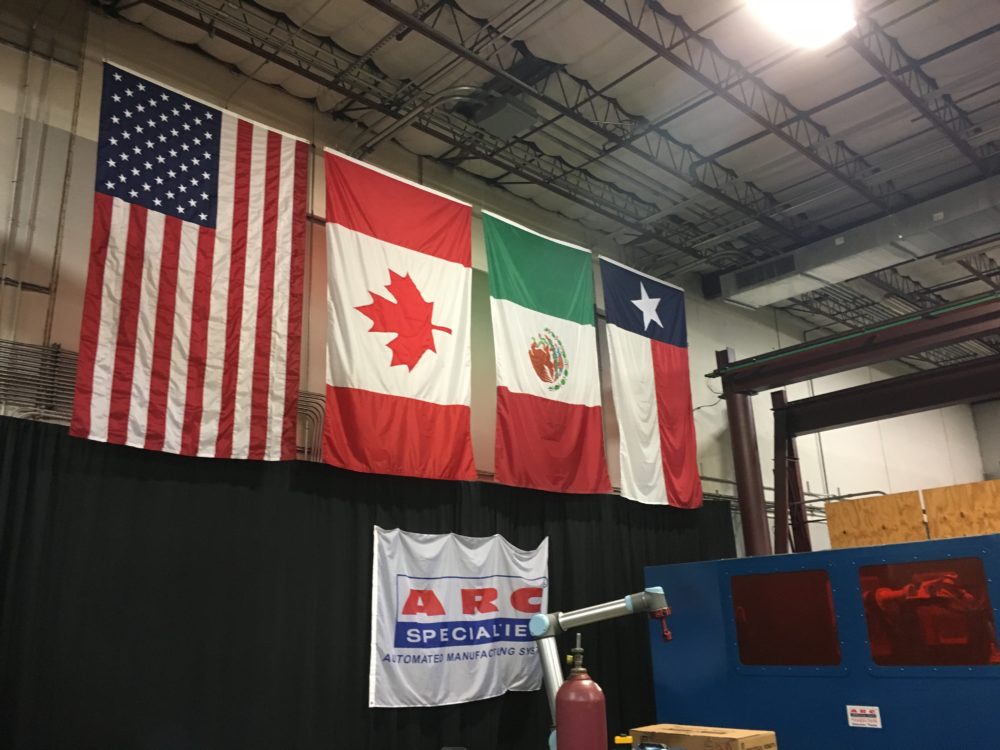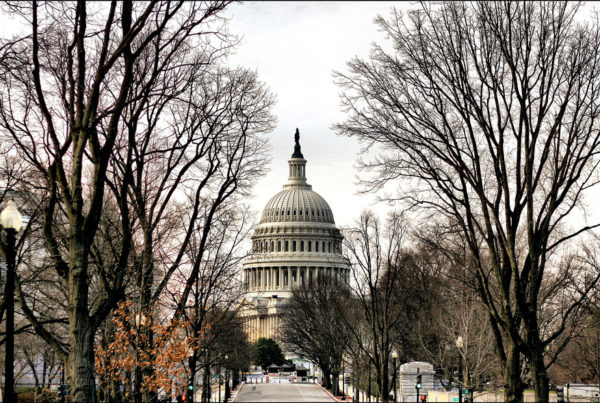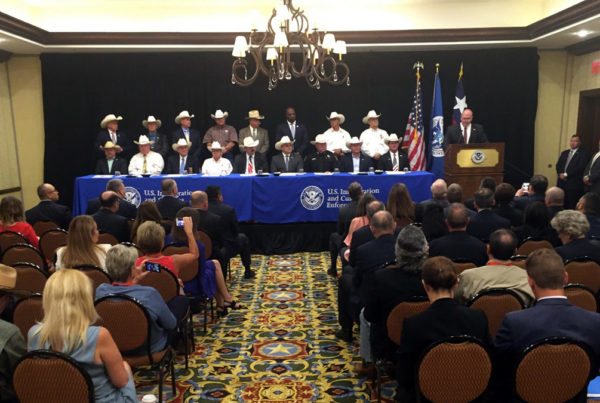President Trump has called NAFTA, the North American Free Trade Agreement, a “job killer” for American manufacturers. It’s a message voters in the industrial Midwest seemed to buy. But with the U.S. now renegotiating the treaty with Mexico and Canada, we found that manufacturers here in Texas are becoming deeply concerned.
Daniel Allford is one of those manufacturers. We talked with him on the floor of his factory, ARC Specialties, on Houston’s west side. Allford started the company in his garage in 1983.
“My whole life, all I’ve ever done is build things,” says Allford. “When I was a kid, I built catapults, flamethrowers, steam engines, and I’ve always been a computer geek. So if you add manufacturing and computers together, you get robotics.”
ARC Specialties now employs more than 50 people to build robots, largely for the oil and gas industry. The company sold few machines to Mexico or Canada its first decade. Then NAFTA came along.
“It was quite seamless to me. All I knew was all of a sudden exports became easy and greater quantity. It fluctuates, but last year 30 percent of our business was overseas, and half of that was Canada and Mexico,” says Allford.
Allford says those gains came when NAFTA eliminated tariffs on his products, making them cheaper for foreign buyers. So when President Trump threatens to pull the U.S. out of NAFTA if Mexico and Canada don’t agree to revisions, he’s aiming right at Allford’s bottom line. “So far, I can’t say that it’s affected me,” said Allford, “but I’m sure it will if tariffs are placed.”
Allford is hardly alone in his fears. Jeff Moseley is CEO of the Texas Association of Business. He recently testified before a Senate subcommittee hearing on NAFTA in San Antonio.
“Since 2006, Texas exports of goods to NAFTA signatories have grown 71 percent,” says Moseley. “An undermining of the tariff policies that have allowed that growth would have huge detrimental effects in most sectors of the Texas economy.”
Gov. Greg Abbott and Sen. John Cornyn have made that point to President Donald Trump often. But the message doesn’t seem to be having much effect. Stephen P. Vaughn, general counsel in the Office of the U.S. Trade Representative, testified at the same hearing.
“Of course, there are Americans who benefit from NAFTA, and we want to avoid harming them,” said Vaughn. “But USTR must look at trade deals from the perspective of the country as a whole, and from that perspective, there are serious problems with NAFTA.” Vaughn said that over the past decade, the U.S. racked up a $500 billion trade deficit with Mexico and a $100 billion deficit with Canada.
George Y. Gonzales, a partner at the law firm of Haynes and Boone, says that may be true, but it misses the point.
“Regional trade was at $290 billion in 1993 among the three countries. In 2016, it’s at $1.1 trillion,” says Gonzales, arguing that jump in North American trade created more jobs than it cost. “It’s the very opposite of what the rhetoric is, in fact. The implementation of NAFTA has preserved jobs and has maintained a vibrant and competitive U.S. manufacturing position.”
Daniel Allford at ARC Specialties says he doesn’t have to imagine what will happen to his sales if the U.S leaves NAFTA. “In the countries that NAFTA doesn’t cover – for example, in Brazil, there’s 40 percent tariffs on my equipment,” he says. “What this means is I have yet to sell a machine to a Brazilian company.”
Trump has set a deadline of March to wrap up the NAFTA talks. Any longer, and they risk bumping up against the Mexican presidential election and campaigning for the U.S. congressional midterms.
















